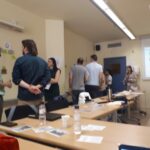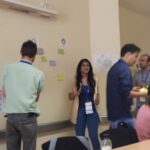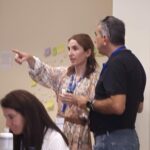What is ESEA?
Ethical, social and environmental accounting
Ethical, social and environmental accounting (ESEA) is the process of assessing the social and environmental effects of an organisation’s actions and reporting them to particular interest groups and to society at large. In other words, it is how responsible organisations typically assess and disclose their performance and their contributions to the common good. By applying an ESEA method, the organisation assesses their performance on topics related to the social dimension (e.g. social inclusion), to the environmental dimension (e.g. waste management), to business ethics and governance (e.g. workplace democracy), or to several of these dimensions. ESEA methods often combine quantitative and qualitative approaches. Examples of ESEA methods and frameworks for accounting are the B Impact Assessment, Common Good Balance Sheet, the GRI standards, ISO 14001, ISO 26000, Sustainable Development Goals Compass, S-CORE, STARS, SMETA, UN Global Compact, Carbon Disclosure Project, SASB Standards, Social Accounting and Audit, REAS and XES Social Balance, and Integrated Reporting <IR>. We have taken all of them (and more) as inspiration for the ESEA4RCIS workshop!
The results are typically disclosed as a non financial report (often referred to as sustainability report, or social balance), that embeds numeric measurements and case descriptions in a coherent narrative. In the case of integrated reports, the non-financial information goes hand in hand with financial information (e.g.revenue). In the case of this workshop, we will publish a paper together.
There is an increasing pressure on organisations to issue such reports. The pressure not only comes from consumers but also from governmental institutions. But, besides contributing to accountability and transparency, ESEA is also becoming a valuable strategic management method for managers with long-term vision, providing the necessary measurements to guide a continuous ethical, social and environmental improvement cycle.
This workshop focuses on accounting the ethical, social and environmental performance of scientific conferences. We will propose a generic method but then we plan to adapt and apply it to the RCIS conference series. In short, ethical, social and environmental accounting consists of the following steps, which we will also cover in this workshop (see the programme here):
- Identifying relevant topics (e.g. diversity and inclusion, energy management,stakeholder engagement, return to society).
- Defining indicators for those topics (e.g. gender ratio of authors, estimation of the electricity consumption, overall attendee satisfaction score, ratio of papers offering open-source code). Read more on the topics below.
- Collecting data to calculate the indicators.
- Analysing and interpreting the results.
- Reporting on the results.
We believe that this should be a community effort and that is the reason to organise a participatory workshop to carry it out. This workshop involves hands-on practice, rather than regular presentations. The involvement of the RCIS community is therefore paramount.
Credits of the header photograph: “Parc Güell, Barcelona” by unicoletti is licensed under CC BY-SA 2.0






